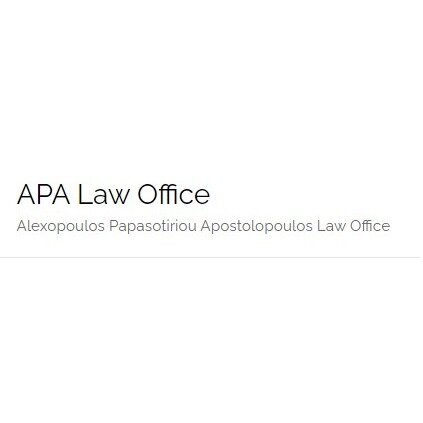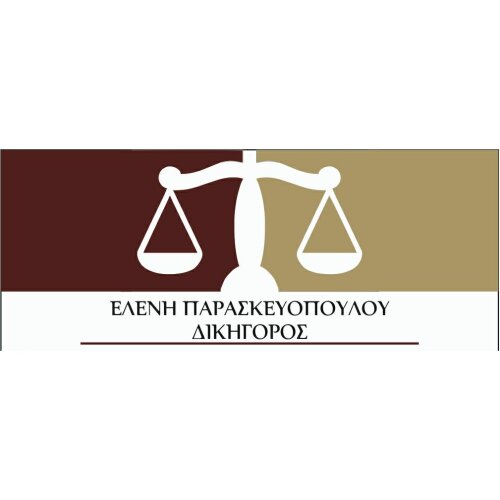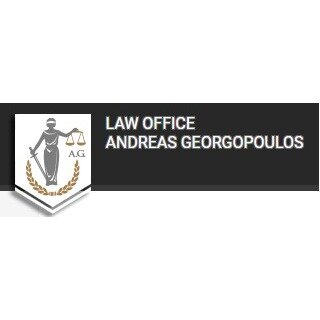Best Water Law Lawyers in Pátrai
Share your needs with us, get contacted by law firms.
Free. Takes 2 min.
List of the best lawyers in Pátrai, Greece
About Water Law in Pátrai, Greece
Water Law in Pátrai, Greece, is a specialized field of law that governs the use, management, allocation, protection, and conservation of water resources. As a major city in Western Greece located near significant water bodies, Pátrai is subject to both national Greek Water Law and region-specific regulations. Water Law seeks to balance the needs of agriculture, industry, households, and environmental protection, ensuring water resources are sustainably managed and equitably shared among users. The legal landscape covers issues such as water rights, pollution control, licensing, and dispute resolution.
Why You May Need a Lawyer
There are several situations where individuals, businesses, or organizations in Pátrai may require the assistance of a Water Law lawyer. These can include resolving disputes over water usage rights between neighbors or municipalities, obtaining necessary permits for industrial or agricultural water use, challenging fines or sanctions for alleged violations of water regulations, addressing unlawful pollution or contamination issues, negotiating water supply agreements, and navigating the complex procedures involved in government water projects. Lawyers can also help with environmental impact assessments and compliance with European Union directives related to water management.
Local Laws Overview
The legal framework for water resources in Pátrai is shaped primarily by the Greek Water Code, national legislation harmonized with EU directives, and regional regulations specific to Western Greece. Key aspects include:
- Water Rights and Access: Water is considered a national resource, and its use is regulated through permits and licenses issued by competent authorities.
- Permitting System: Any significant use or diversion of water for agricultural, industrial, or commercial purposes requires prior approval, including irrigation, construction near water bodies, and groundwater extraction.
- Protection of Water Quality: Strict limits are placed on discharges into water bodies, with severe penalties for pollution and requirements for wastewater treatment.
- Integrated Water Management: Laws promote coordinated management of water catchments, considering both surface and underground water and balancing human needs with ecological concerns.
- Public Participation: Citizens and interest groups may participate in decision-making processes regarding water management through consultations and public hearings.
- Dispute Resolution: Conflicts over water use are managed first through administrative review and, if necessary, through court proceedings specializing in environmental and property matters.
Frequently Asked Questions
What is considered a legal water use in Pátrai?
Legal water use typically refers to any use that complies with national and local licensing requirements and does not adversely affect other users or the environment. This includes domestic, agricultural, industrial, and recreational use authorized by permits.
Do I need a permit to drill a well on my land?
Yes. Drilling for groundwater requires a permit from the regional water authority, and unauthorized drilling is subject to fines and possible criminal sanctions.
What can I do if my neighbor's activities pollute a water source I rely on?
You can file a complaint with the relevant water authority or environmental service. A lawyer can assist in initiating legal proceedings for compensation or cessation of harmful activity.
Are there restrictions on water use during droughts?
Yes. The government or regional authority may impose temporary restrictions to prioritize essential uses and protect water supplies during periods of drought or scarcity.
Can water rights be inherited or transferred?
In most cases, water use rights attached to land can be transferred with ownership. However, changes in use or significant alterations may require updated permits or approval from authorities.
Who manages public water supply in Pátrai?
The municipal water utility, D.E.Y.A.P. (Δημοτική Επιχείρηση Ύδρευσης Αποχέτευσης Πάτρας), manages public water supply and wastewater services in Pátrai.
Is rainwater harvesting allowed in Pátrai?
Rainwater harvesting for personal use is generally permitted, provided it does not impact the local water regime or breach municipal regulations.
How is water quality monitored?
Water quality is regularly monitored by the municipal utility and environmental authorities, in compliance with Greek and EU standards. Incidents of pollution should be reported immediately to these bodies.
What legal remedies are available for overcharging or unfair water bills?
Consumers can first address disputes with the water utility's customer service. If unresolved, complaints can be escalated to consumer protection authorities or pursued through civil court.
How does EU law affect water regulation in Pátrai?
Greece is required to implement EU directives, notably the Water Framework Directive, which sets high standards for water protection, integrated management practices, and stakeholder involvement across all regions, including Pátrai.
Additional Resources
If you need further information or direct assistance, consider reaching out to the following organizations and bodies:
- Municipal Water and Sewerage Company of Pátrai (D.E.Y.A.P.) for customer queries and local water services.
- Decentralized Administration of Western Greece and Peloponnese for regional permits and management.
- Ministry of Environment and Energy, Department of Water Resources for national-level inquiries.
- OMED (Greek Water Management Organization) for technical guidelines and policy updates.
- Local Bar Association for lawyer referrals specializing in Environmental and Water Law.
- Consumer Ombudsman for issues regarding billing or service disputes.
Next Steps
If you are facing a water-related legal issue in Pátrai, it is recommended to document all relevant facts and communications, including correspondence with water authorities or individuals involved. Review your permits, contracts, and any notices you have received. For complex matters, consult a qualified lawyer with expertise in Water Law to assess your situation and outline your legal options. You may also seek initial guidance from public agencies or environmental organizations. Acting promptly can preserve your rights and prevent escalation of disputes.
Lawzana helps you find the best lawyers and law firms in Pátrai through a curated and pre-screened list of qualified legal professionals. Our platform offers rankings and detailed profiles of attorneys and law firms, allowing you to compare based on practice areas, including Water Law, experience, and client feedback.
Each profile includes a description of the firm's areas of practice, client reviews, team members and partners, year of establishment, spoken languages, office locations, contact information, social media presence, and any published articles or resources. Most firms on our platform speak English and are experienced in both local and international legal matters.
Get a quote from top-rated law firms in Pátrai, Greece — quickly, securely, and without unnecessary hassle.
Disclaimer:
The information provided on this page is for general informational purposes only and does not constitute legal advice. While we strive to ensure the accuracy and relevance of the content, legal information may change over time, and interpretations of the law can vary. You should always consult with a qualified legal professional for advice specific to your situation.
We disclaim all liability for actions taken or not taken based on the content of this page. If you believe any information is incorrect or outdated, please contact us, and we will review and update it where appropriate.










